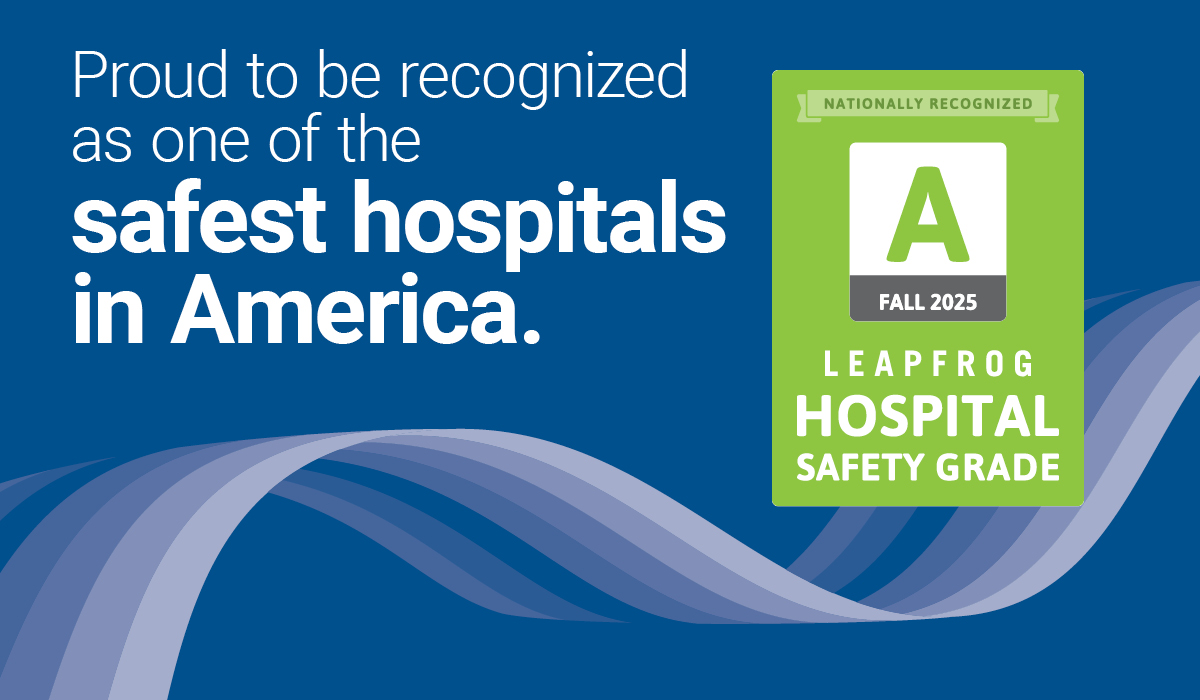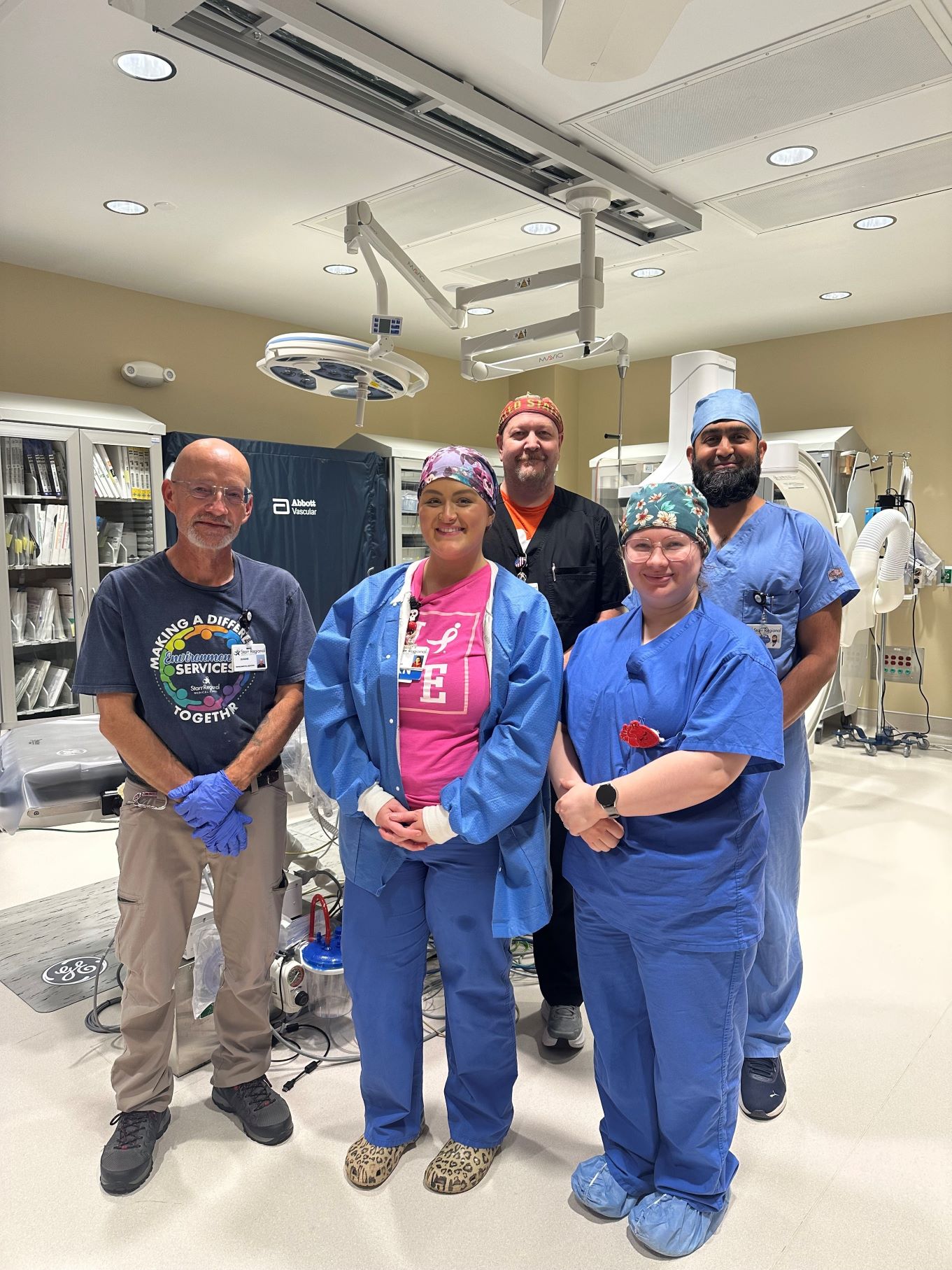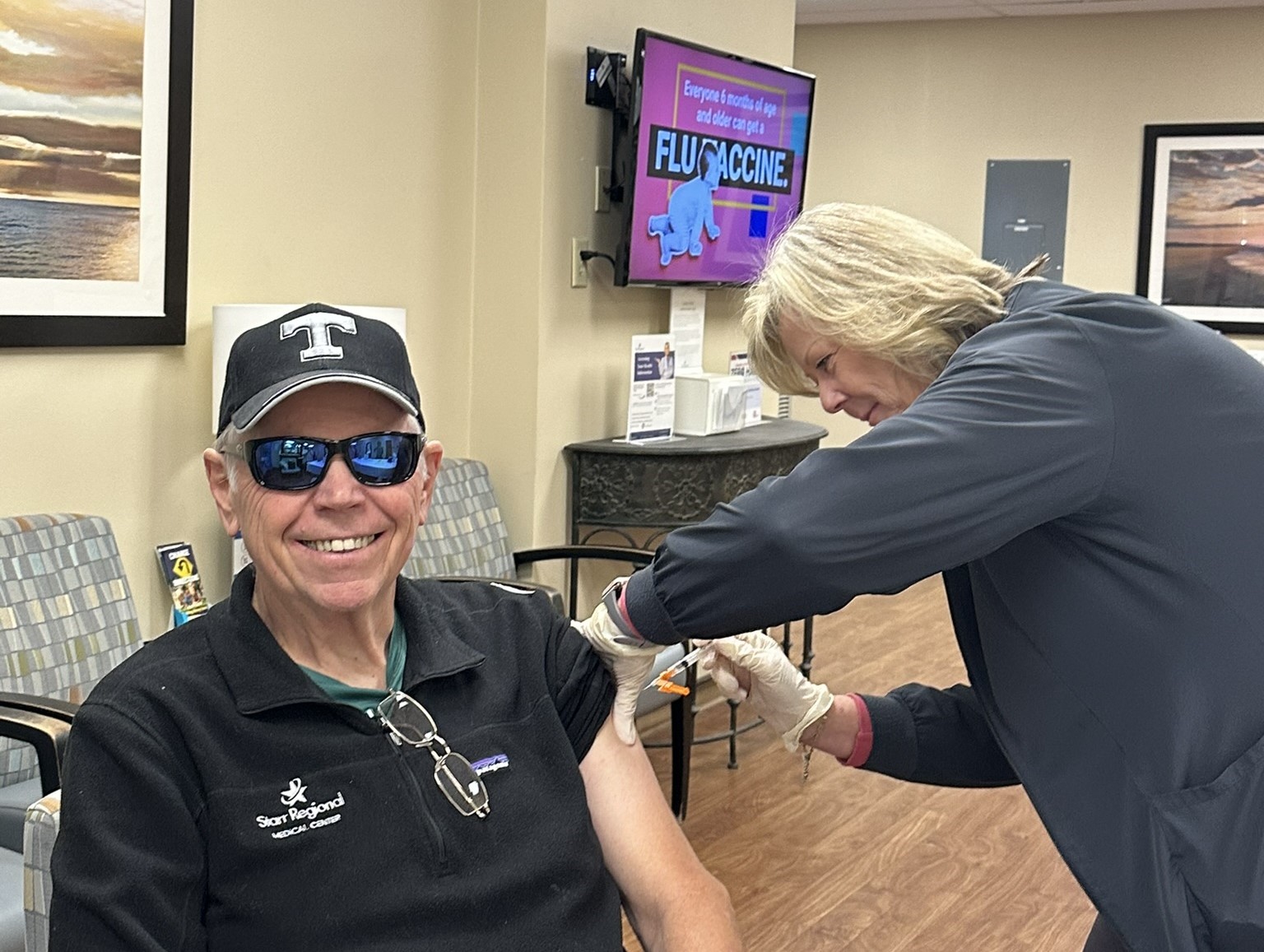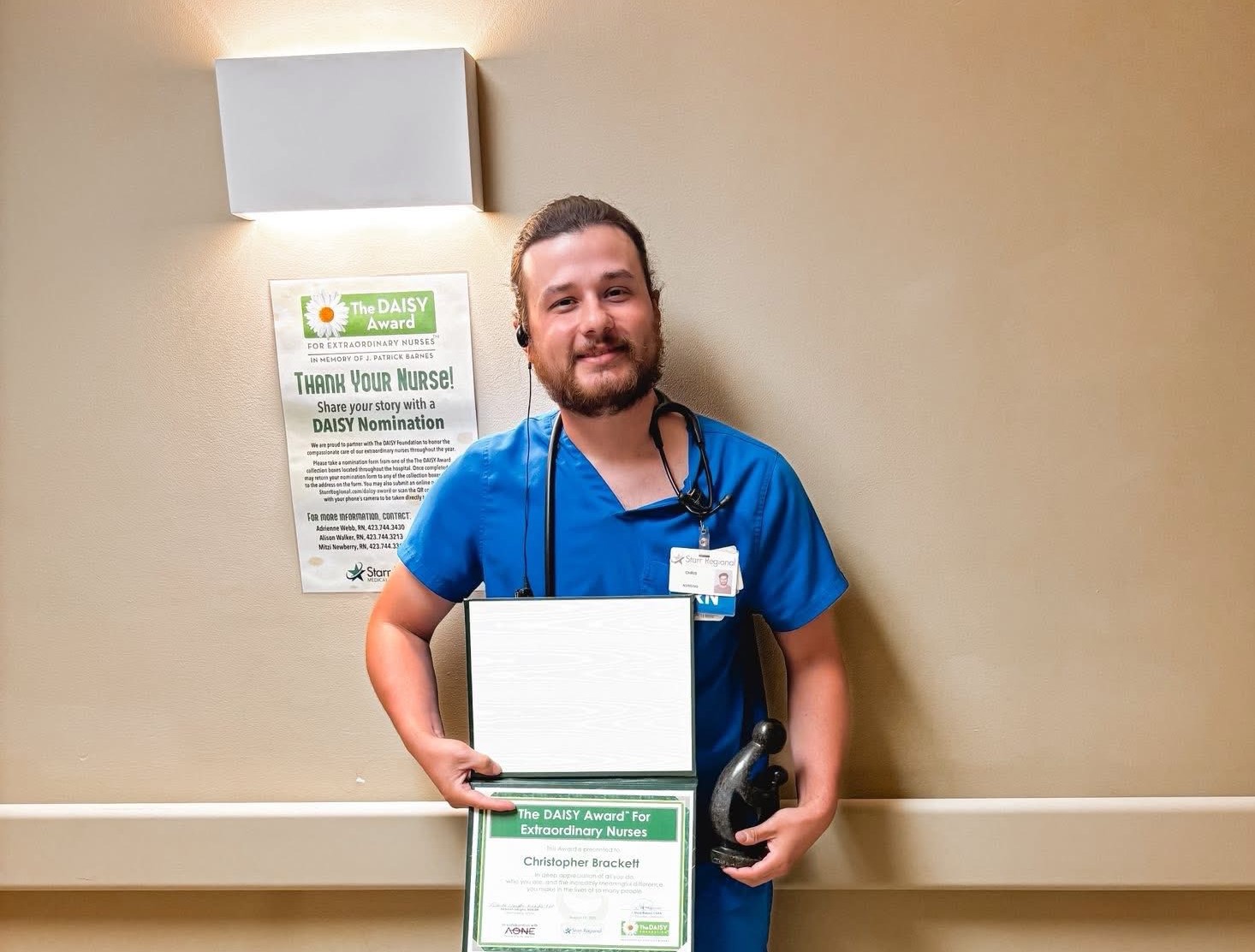News
-

What Your Annual Blood Work Can Reveal About Your Health
December 22, 2025Your yearly blood work gives your provider information they can’t see during a physical exam, sometimes before you notice any symptoms at all. Blood work isn’t only for sick visits – routine lab work plays a key role in preventive care and long-term health. In Athens, Tennessee, many adults…
Learn more -

U.S. News & World Report’s 2026 Best Nursing Homes Names Starr Regional Health & Rehabilitation Among Best in Tennessee
December 15, 2025Starr Regional Health & Rehabilitation has been recognized as a Best Nursing Home for 2026 by U.S. News & World Report.
Learn more -
.jpg)
Is It a Cold, the Flu, or Something Else? How to Tell the Difference
November 25, 2025When your child starts coughing, sneezing, or running a fever, it can be hard to know what you’re dealing with. As the seasons change and kids head back to school or daycare, coughs and sniffles start making the rounds. Here in Athens, TN, that often leaves parents asking: is it just a cold, or something more serious like the flu, RSV, or…
Learn more -

Starr Regional Medical Center Earns an ‘A’ Hospital Safety Grade from The Leapfrog Group
November 14, 2025Starr Regional Medical Center earned an “A” Hospital Safety Grade from The Leapfrog Group, an independent national nonprofit watchdog focused on patient safety. Leapfrog assigns an “A,” “B,” “C,” “D” or “F” grade to general hospitals across the country based on over 30 measures of errors, accidents, injuries and infections as well as the systems hospitals have in place to prevent them.
Learn more -

Starr Regional Medical Center to Host Annual Christmas Tree Lighting
November 12, 2025Starr Regional Medical Center invites the community to join its annual Christmas Tree Lighting celebration on Monday, November 24, from 5:15 to 6 p.m. The event will take place on the Athens campus at 1114 West Madison Avenue.
Learn more -

Katherine Hall, MD, FAAFP, Named President of Tennessee Academy of Family Physicians
October 27, 2025Starr Regional Medical Center announced today that Katherine Hall, MD, FAAFP, a board-certified family medicine physician, has been named President of the Tennessee Academy of Family Physicians (TNAFP) during the organization’s annual conference held October 22 – 25, 2025, in Franklin, Tennessee.
Learn more -

Starr Regional Medical Center to Host Community Halloween Trunk-or-Treat Event
October 23, 2025Starr Regional Medical Center will host its first-ever communitywide Trunk-or-Treat event on Thursday, October 30 from 5 – 7 p.m. The event will take place on the Etowah campus, located at 886 Highway 411 North, Etowah.
Learn more -

Safely Manage Medications to Protect Your Personal and Community Health
October 23, 2025Although medications can provide many benefits, their misuse can also pose a serious health risk to you and our community. That's why it’s so important to establish and maintain safe medication habits.
Learn more -

What Does Breast Cancer Look Like in Its Early Stages?
October 21, 2025Breast cancer is one of the most common cancers in women, and early detection can dramatically improve outcomes. But what does breast cancer actually look like in its earliest stages? It’s not always a visible lump – early signs can be subtle, and knowing what to watch for can make all the difference. Below are some common early signs and symptoms to be…
Learn more -

Starr Regional Medical Center Expands Cardiac Care with First Leadless Pacemaker Implantation
October 17, 2025Starr Regional Medical Center (SRMC) has successfully performed its first implantation of the Micra™ leadless pacemaker, a device that helps regulate heartbeat in patients with bradycardia (slow heart rate). The procedure was completed by Yasir Akhtar, MD, and the cardiac catheterization team, marking a major milestone in the hospital’s commitment to advancing cardiac care in McMinn County and surrounding communities.
Learn more -

Flu Shot Fundraiser benefits Friendly Fellow Club’s Christmas Basket Program
October 15, 2025Starr Regional Medical Center is providing flu shots as a fundraiser for the annual Friendly Fellow Club’s Christmas Basket Program on Friday, October 24 from 9 a.m. until 12 p.m.
Learn more -

Starr Regional Medical Center and Athens-McMinn Family YMCA Team Up for Breast Cancer Awareness
October 06, 2025October is Breast Cancer Awareness Month – a time for all of us to acknowledge the impact breast cancer can have on our lives, and to learn about the ways we can keep ourselves healthy.
Learn more -

Why You Shouldn’t Skip Your Annual Physical: Screenings That Save Lives
September 26, 2025Many people put off their annual physical, if they feel fine, there’s no urgent need to visit the doctor. But skipping your yearly check-up can mean missing the early signs of serious conditions that are often treatable if caught early. At Starr Regional Medical Center, we believe prevention is just as important as treatment. Your annual physical is a…
Learn more -

Starr Regional Medical Center hosts Lunch & Learn presented by Waed Alswealmeen, MD
September 10, 2025Starr Regional Medical Center will host a Lunch & Learn on Wednesday, September 17 at 12 p.m. on the Athens campus. Waed Alswealmeen, MD, a general surgeon at Starr Regional Medical Center will discuss “Robotic-Assisted Surgery & Updates in Hernia Management.”
Learn more -

How to Protect Your Child from Fall Viruses like Flu, RSV, and COVID
September 05, 2025In warmer parts of the country like Athens, TN, respiratory virus season can begin as early as September and stretch well into the winter. With kids back in school, viruses like flu, RSV, and COVID-19 start spreading quickly – especially among young children whose immune systems are still developing. As a parent, you can take steps now to help protect…
Learn more -

Chris Brackett, RN, named recipient of The DAISY Award
August 28, 2025Starr Regional Medical Center announced today that Chris Brackett, RN, has been named the recipient of The DAISY Award for the second quarter of 2025. The DAISY Award for Extraordinary Nurses is a recognition program honoring “the super-human work nurses do for patients and families every day.” Nominations for the award may be submitted by anyone who experiences or observes extraordinary, compassionate care being provided by a nurse.
Learn more -

Patient Story: Robotic-assisted surgery changed Kelly's life
August 15, 2025After a shocking diagnosis of rectal cancer, Kelly faced months of chemo, radiation, and uncertainty. But everything changed on June 3, 2025, when she underwent robotic-assisted surgery at Starr Regional Medical Center.
Learn more -

Starr Regional Medical Center Launches 24/7 Tele-ICU Services
August 04, 2025Starr Regional Medical Center (SRMC) today announced it is implementing a 24/7 tele-intensive care unit (tele-ICU) service at its Athens and Etowah campuses.
Learn more -
.jpg)
Why Mosquito-Borne Illnesses Are on the Rise — and How to Protect Yourself
August 01, 2025Warmer weather and standing water are fueling a surge in mosquito-borne diseases. Here’s what you need to know and how to prevent them.
Learn more -

Starr Regional Medical Center awarded for efforts to improve rural stroke care
July 17, 2025The American Heart Association’s Get With The Guidelines® - Stroke Rural Recognition Silver award recognizes efforts to address the unique health needs of rural communities
Learn more
